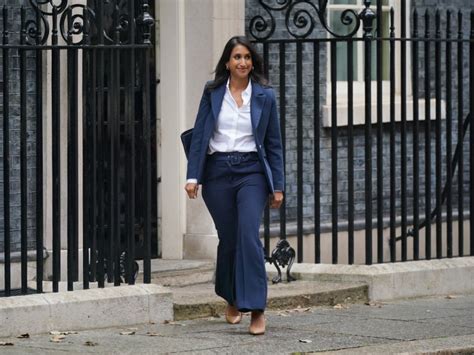Industry lobbyists Solar Energy UK have welcomed a parliamentary statement today by D-ESNZ chief Claire Coutinho, – pictured – as confirmation that existing land use policies will continue to provide stability, while solar farms proliferate.
The only significant new step announced by the energy security secretary today, according to the lobbyists, concerns perceptions of accuracy in ranking the soil quality on agricultural land housing new racks of panels.
The government intends to strengthen such perceptions by means of more independent certification in land assessments sent by developers to planning authorities. This measure is intended to help avoid disputes over which areas are subject to planning guidelines on higher quality agricultural land.
“Both Coutinho and the Prime Minister’s broader comments on food security appear to be directed at a small minority of anti-solar Conservative backbenchers, rather than decision-makers in local councils”, said Solar Energy UK in a statement released this afternoon.
“Solar farms take up a tiny fraction of the country. That will still be the case in 2035 when the government expects us to have four times current solar generation capacity”, said the industry body, citing the government’s April 2022 Energy Security Strategy, and a Carbon Brief evaluation later that year on solar farms’ impact on UK farmland.
“Solar farms are no threat to food security; they never have been and never will be. In fact, it’s the opposite,” said Solar Energy UK’s ‘roi soleil’, chief executive Chris Hewett.
“According to Defra, the main threat to food security is climate change, which is what solar farms are there to fight.”
“Without solar farms, hundreds of traditional farming businesses would have gone to the wall, unable to produce food without the security of a reliable income,” Hewett added.
Yesterday the government published the first release of Britain’s new official Food Security Index. The cost of energy to food producers was among key factors it identifies.
By the government’s own figures, the lobbyists claim, solar farms are the cheapest source of electricity, adding to their contribution to food security, to decarbonisation and thus to Britain’s broader national interests.
Advocates for solar farms say it is common for agriculture to continue in fields once panels are hooked up, typically through sheep grazing. Racks erected a metre and more above the soil also offer benefits to nature, such as providing shelter for wildlife and native flora, thus restoring natural habitats among intensively farmed ‘green deserts’.
Solar farms are demonstrably liked by their human neighbours, as consistently evidenced in Whitehall’s own surveys. Independent research in November by analysis firm Climate Barometer found that MPs & casual readers of newspapers vastly overestimate public opposition to farms’ introduction.
“The solar industry will continue to follow established principles”, the lobbyists’ statement went on. “(The industry) looks forward to the publication of the government-industry Solar Roadmap, which will light the way towards adding more than 50GW of solar capacity over the next decade”. The master plan is expected in coming weeks.




